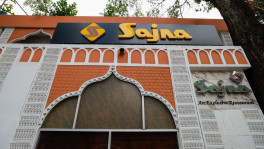Injecting black money in banks may backfire
The move can increase Bangladesh’s country risk rating, which will tarnish its image, push up the costs for foreign trade and discourage foreign investments

Allowing black money in bank deposits and other instruments may cost Bangladesh more than the benefits it is hoping for, bankers and analysts have said.
Bangladeshi banks may face questions from counterpart foreign banks in trade transactions and be subjected to higher risk charges and premiums, they said, suggesting that banks should not risk their credibility by providing safe haven for tax dodgers and money launderers.
The move can increase Bangladesh's country risk rating, which will tarnish its image, push up the costs for foreign trade and discourage foreign investments.
"The decision will create problems and increase our costs," said Mashrur Arefin, managing director of the City Bank. Arefin also hinted that they might not accept these untaxed deposits to avoid problems in their business, especially with export and import.
Masrur Reaz, a former senior economist of the World Bank Group, said the facility could have been extended directly to the Covid-19 affected industries, instead of channelling the money to the banks.
"The move will push up the country's risk rating," said Reaz, noting that the foreign banks may charge more from local banks for confirming LCs (Letters of Credit).
Banks are required by anti-money laundering law to strictly follow KYC (Know Your Customer) procedures while opening accounts and monitor every big transaction.
But the proposed budget says banks will not ask about the source of money being deposited, which is a violation of globally accepted norms to check illegal flow of money.
"Even Swiss banks are no longer a safe haven for money launderers from around the globe," Reaz said. Taking big deposits without question will mean that banks may unknowingly accept money from a person or entity put under the "sanction list" of any global agency or country, which may put those banks in trouble for future transactions, he cautioned.
The issue has become a matter of concern to the bankers and economists after Finance Minister AHM Mustafa Kamal, in his budget for fiscal year 2020-21, allowed a blanket facility of whitening black money through banks, stocks, mutual funds, savings certificates, bonds, real estate etc.
People who will avail the facility have to pay only 10 percent tax, no matter how big the amount is, whereas, for regular declared incomes, the highest tax rate goes as high as 39 percent, including additional surcharge for wealth.
"This is an absurd and wrong decision," said Ahsan H Mansur, executive director of the Policy Research Institute of Bangladesh. "Of course, there must be a penalty in addition to the applicable tax rates."
The finance minister's decision may also affect Bangladesh's achievement in the anti-money laundering efforts for the past one decade.
In 2010, Bangladesh was included in the Financial Action Task Force's (FATF) list of countries vulnerable to money laundering and terrorism financing because of its weak efforts and laws. The FATF is an international body for monitoring money laundering.
At that time, people could park their money into the banking system without facing any hurdles.
Then Bangladesh amended its money laundering laws in 2012 and Anti-Terrorism Act, 2009 in 2013 to avoid getting blacklisted. Tax evasion was included in the money laundering laws as an offence for the first time.
Consequently, the Egmont Group, a body of 164 Financial Intelligence Units (FIUs) of different countries, made Bangladesh its member for the first time in 2013. In the following year, Bangladesh came out of the FATF's grey list of countries vulnerable to money laundering.
In 2016, Bangladesh was recognised as a compliant country, and in 2017, it reached a position in Basel Anti-Money Laundering Index superseding 28 countries. Bangladesh became co-chair of the Asia/Pacific Group (APG) on Money Laundering, an inter-governmental organisation consisting of 41 countries, for 2018-20.
"If the APG takes cognisance of this facility allowed in the budget, Bangladesh's risk may go up and foreign trade will be costlier," said a senior central bank official who is involved in Bangladesh's anti-money laundering efforts for a decade.
He referred to an example of 2011 when the National Board of Revenue in an SRO (Statutory Regulatory Order) had said that untaxed money could be invested in the capital markets without any question.
"The APG had served us a notice, taking exception to the decision to allow bribe and corruption money into our economy too easily. We had to be under their scrutiny for two years, and the SRO was amended later," said the official.
Responding to a query, Abu Hena Mohd Razee Hassan, head of the Bangladesh Financial Intelligence Unit (BFIU), said if it is untaxed money generated through legal means, it may not be a big problem.
"We have the experience to deal with the issue and we hope we can comply with the APG standards this time," Razee Hassan, also a former deputy governor of the central bank, told The Business Standard.
There is another view as some people think the move is a good one, considering the present pandemic situation when the country needs a lot of money to help the economy recover.
"It is a very right decision. Even if Tk10 comes under this facility, it will be good for the economy. We need liquidity now," said Prashanta Kumar Banerjee, professor of Bangladesh Institute of Bank Management.
He said there is lots of legal but untaxed money in the economy citing from one of his studies that shows many professionals earn a lot of money but do not pay the required taxes. And now they can avail this facility, he said.
However, Deb Prasad Debnath, a consultant of BFIU and MA Halim Chowdhury, managing director of Pubali Bank are not very optimistic about the amount of money to be whitened under the facility.
"This kind of benefit was given on a number of occasions but the response was very poor," said Debnath, a former senior official of the central bank. Only Tk400 crore to Tk450 crore came into the economy each time the facility was offered by the government, he added.
"Corrupt people will not deposit the money into the banks as they think they will easily be detected by other agencies concerned," said the managing director of the Pubali Bank.


 Keep updated, follow The Business Standard's Google news channel
Keep updated, follow The Business Standard's Google news channel
















